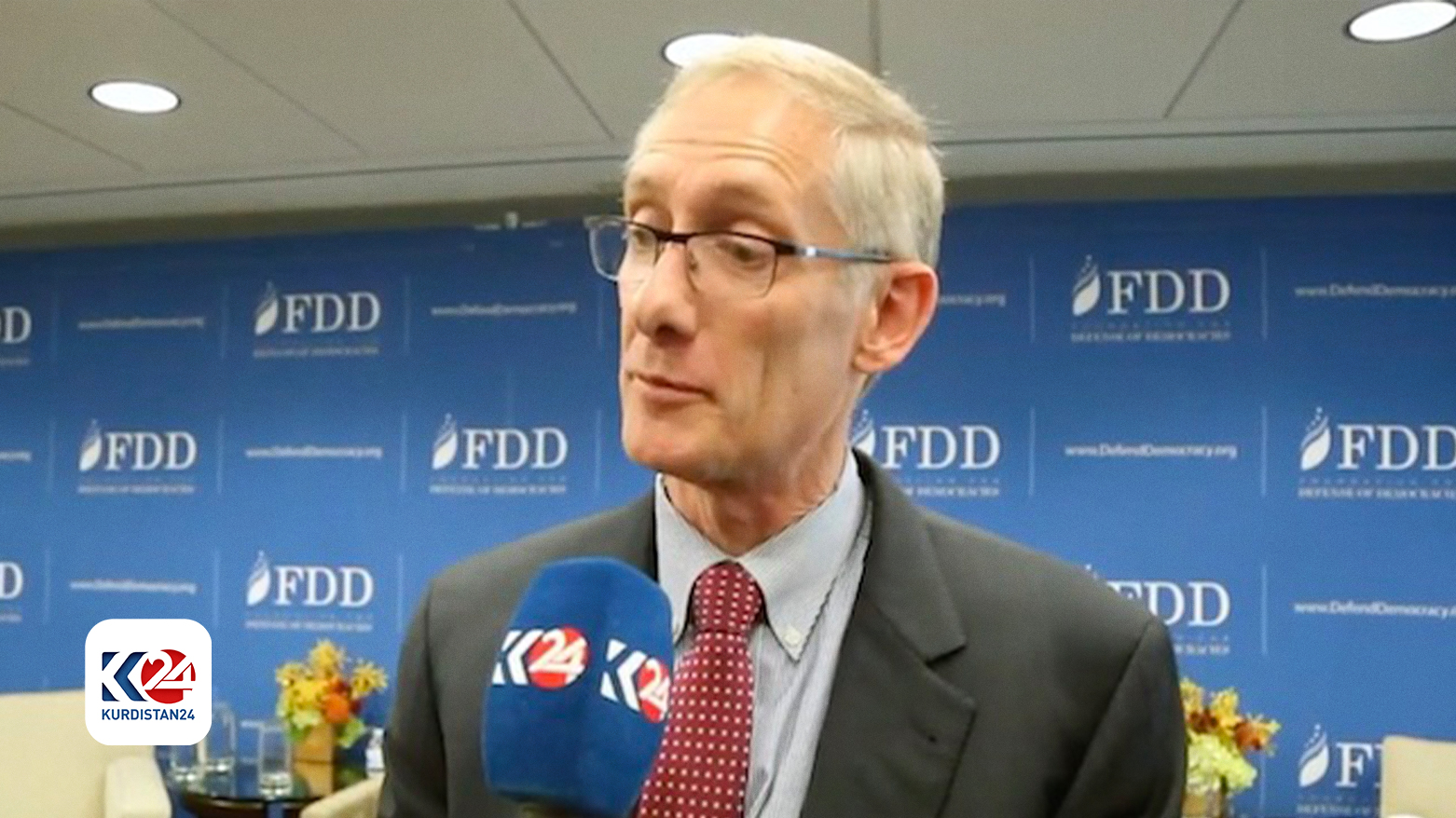John Hannah: Kurds are Reliable Allies to U.S.

ERBIL (Kurdistan24) – John Hannah has had a long career in national security affairs, working in both Republican and Democratic administrations. Most recently, during the administration of George W. Bush, he served as National Security Adviser to Vice President Dick Cheney.
Hannah was among those senior U.S. officials who recognized the danger posed by Saddam Hussein, and he was a strong advocate for the 2003 war that overthrew Saddam and his regime, as was Cheney himself.
In an interview last week with Kurdistan 24, Hannah affirmed that now was the time for the U.S. to support the Kurdistan Region, which has been a long-standing friend to the U.S., in order to overcome the challenges created by Iran’s strong influence in Baghdad.
Hannah described the Kurds as “steady, steadfast, reliable, brave and courageous” allies. “Over the course of a very difficult last 30 years, for both of us—and we have been through a lot together—we stood side by side,” he said.
Yet, as Hannah continued, “we have succeeded in creating something real, viable, and meaningful in the Kurdistan Region of Iraq, and right now, it is under real threat—the Iraqi federalism that the U.S. helped to build and guarantee is under threat.”
Hannah reiterated that the Kurdistan Region now faces threats from the central government in Iraq. “I hope Prime Minister Masrour Barzani” can alert and inform “policy-makers—in our Congress, at the White House, at the State Department—about what is happening in Baghdad, about the kinds of pressure that Baghdad, and through Baghdad, the Iranians, are putting on our real achievement in Iraq—which is the creation of a federal Kurdistan Region that has been very successful.”
“I think it is very important for the Prime Minister to come here and remind people of how much we have done together, and how much we can do going forward, to have an ally like the Kurds in Iraq, and how important it is for the U.S. to continue to stand by their side and support them in this real struggle” they are in now, “which is under way with the Iranian-backed regime in Baghdad.”
Hannah suggested that, as an optimist, he should believe that the “U.S., when it gets proper information and a proper analysis of what is happening in Baghdad,” will “understand that our only real friends now in this part of the world are, in fact, the Kurds and the people of the Kurdistan Region.”
Hannah stressed the importance of having regional allies who are willing to stand alongside the U.S. against common adversaries, not only offering political support, but also ready to take risks themselves.
“We do have a relationship, first, militarily with the Kurdistan Region and the Kurdish Peshmerga,” Hannah said. And “we need to figure out how to maintain that military relationship and enhance it” in order to “ensure that our Kurdish friends do have what they need to adequately defend themselves against Iran and its militias, which are attacking the Kurdistan Region on a regular basis, as well as the U.S.”
“Despite what some people say, [Iran] continues to have great influence. Iran wants to exercise it on that regime in Baghdad, particularly tremendous economic influence,” he warned.
Hannah strongly advised that the U.S. should take steps to maximize its own economic influence to encourage the Baghdad government, including Iraq’s Federal Supreme Court, to ease the pressure they are exerting on the Kurdistan Region.
Such steps from Washington would deter action in Baghdad that undermines the Iraqi constitution, federalism, and, ultimately, American interests in Iraq.
“Americans naturally have sympathies for the Kurds, because I think the Kurds have always been sympathetic to America,” Hannah said.
“Kurds want America to succeed; they want American power in their part of the world,” Hannah explained. “They welcome friendship and partnership with America. They want to be part of the modern world and international system. They want to be prosperous and free. And those are values and interests that the U.S. shares as well.”
“We need friends who have power, who have commitment, who have courage, who have capability and who share an awful lot of our values.” Hannah said, as he explained Washington’s compelling interest in supporting a vital and vibrant Kurdistan Region.
Hannah ended by affirming that because the U.S. has such diverse global interests, ranging from China to Ukraine and the situation in Gaza, it is crucial for the Prime Minister to address Washington on behalf of the Kurdish people.
Speaking to influential figures in the world's most powerful country is essential to convey a clear picture of the situation and underscore the significance of a free, federal, prosperous, and robust Kurdistan, as a valuable asset for advancing American interests in the Middle East.
Editing by Laurie Mylroie
